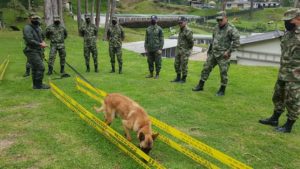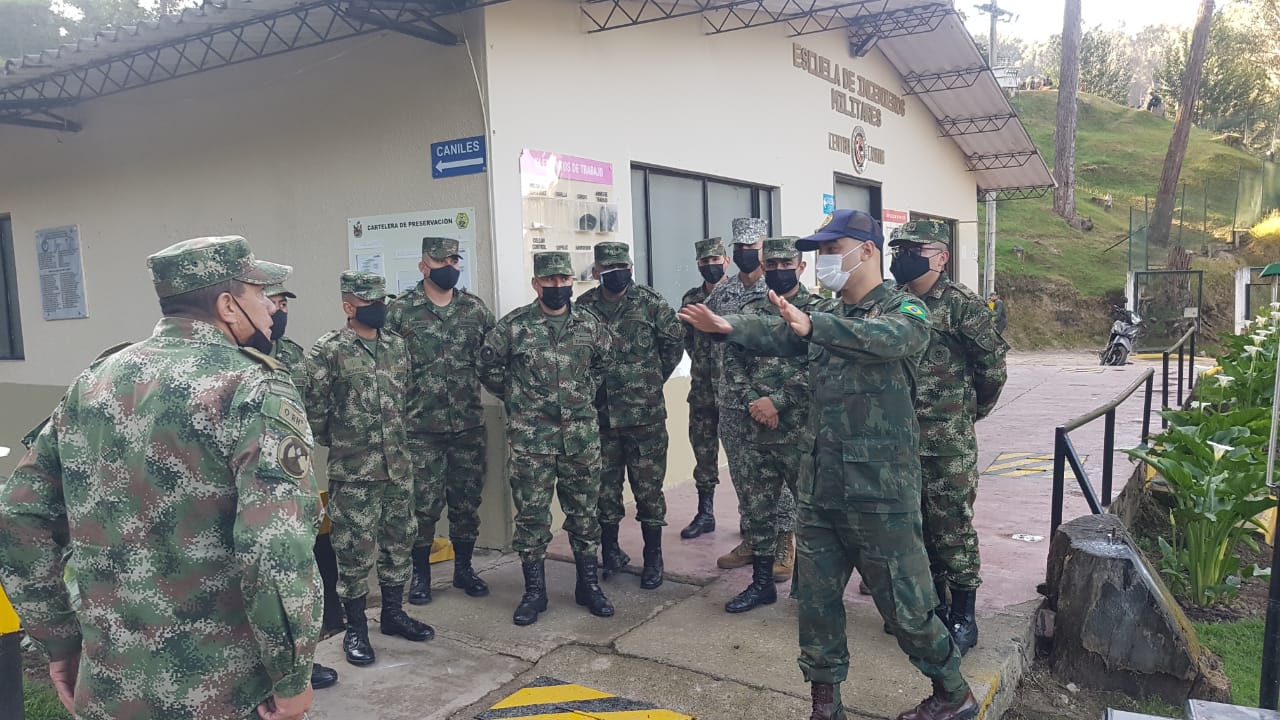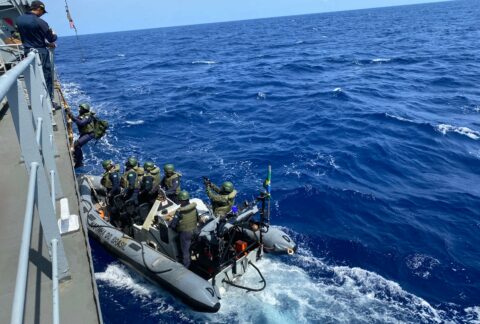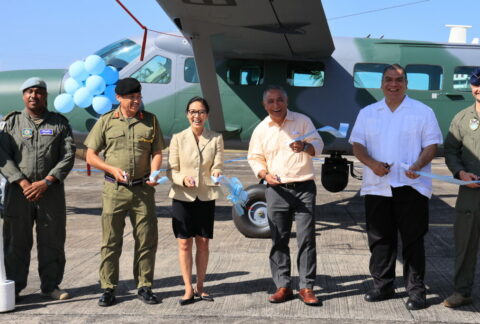Brazilian Army (EB, in Portuguese) Lieutenant Colonel Cláudio Santos Bispo and Brazilian Marine Corps Captain Gustavo Lopes da Silva Freitas are training Colombian service members to become national humanitarian demining monitors.
The Brazilian officers are instructors of the National Humanitarian Demining Monitors Course, as part of the Inter-American Technical Advisory Group in Colombia (GATI-CO, in Spanish). The GATI-CO aims to advise the Colombian Military Forces’ General Command on issues related to humanitarian demining and train Colombian service members who work on this mission.
The new seven-week class for monitors, which started January 21, 2022, includes 10 Colombian Navy and Army service members with experience in humanitarian demining operations.

The use of mine detection dogs as a technique was one of the training the Brazilian officers conducted during the course. The January 27-28 training was carried out at the Colombian School of Military Engineers (ESING, in Spanish) and at the ESING Canine Training Division facilities. During theoretical and hands-on training, the Colombian students learned about the procedures in place to select, prepare, and use mine detection handlers and dogs to search for and identify various explosive artifacts.
The Brazilian officers told Diálogo that the theoretical part of the training was intended to introduce future monitors to the specifics, requirements, possibilities, and limitations of the use of mine detection dogs in demining operations in Colombia. “The monitors will be responsible for quality management of demining operations that a humanitarian demining organization carries out and need to fully master the technique,” Lt. Col. Bispo said.
The hands-on training served to increase students’ confidence in the use of mine detection dogs. “During the activity they saw the animals’ performance in the search for substances and learned about the steps of the arduous training they will carry out daily,” Capt. Gustavo Lopes said. “The binomials [canine handler and mine detection dog], once trained, stay together in a training that lasts more than a year, which allows for precise, fast, and reliable searches.”
Benefits
The use of mine detection dogs increases operational capability and improves the performance of humanitarian demining organizations, allowing the canine binomial to operate in regions where the use of metal detectors is not possible. GATI-CO instructors have been observing the benefits of using dogs, which can verify suspected mines faster and bring reliability to demining operations, due to their keen intelligence, physical endurance, and accuracy in detecting explosive artifacts.
“This technique is very effective in places with excess metal contamination, regions where the soil is naturally rich in metallic minerals, or large areas,” Lt. Col. Bispo said. “The dogs’ keen sense of smell allows relatively large areas to be checked safely and quickly, adding speed to the demining process in general,” added Capt. Gustavo Lopes.
The mission of the Brazilian officers in Colombia initiated in 2020. Both officers are expected to return to Brazil by end of 2022.
In 2021, the Brazilian officers taught three Quality Management courses in Humanitarian Demining. “In addition to the ongoing course, two more are scheduled for the end of 2022,” Lt. Col. Bispo said.
“Working as an instructor in Colombia has been a great opportunity to have contact with and analyze how the Colombian Military Forces work with regard to the presence of mines in some areas of the country,” Lt. Col. Bispo said. “More than simply acting as instructors, knowledge in the context of the mission works as a ‘two-way street.’ This is because the students, service members with knowledge on demining, also share their experiences in humanitarian demining operations,” Capt. Gustavo Lopes concluded.









